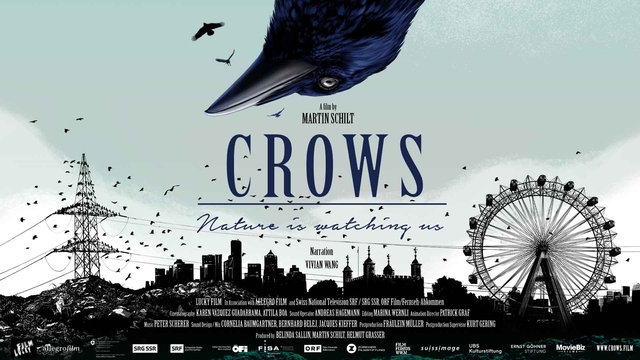The Producers

Martin Schilt - Director
Martin Schilt was born in Bern in 1971. In 1992, he obtained his teaching qualification but had been working as a film journalist since 1987. In 1995, he began his studies at the School of Design in Bern and became a video journalist at Telebärn. From 1996, he produced various documentaries for the programmes DOK and Reporter. Since 2009, Martin Schild has been the owner of Lucky Film GmbH together with Belinda Sallin.

Helmut Grasser - Producer
In 1989 Helmut Grasser founded the film production company Allegro Film, which he still heads today and with which he has produced over 70 films to date - including documentary "We Feed the World" (2005), which attracted over 200,000 viewers in Austria and many times that number abroad. In 2013 he won the German Film Award (Lola) for the best documentary "More than honey" (director: Markus Imhof), in 2014 "Dark Valley" (director: Andreas Prochaska) won the German Film Award "Lola" eight times, as well as the Austrian Film Award nine times, including the award for best film.
Making The Film
"Couldn't you make a movie about birds?" I was asked by my son Elijah. "About birds? Which birds would be worth making a movie about?" "Crows!"
A little later, I decided to make a film about corvids. In this respect, I was no different from the biologist and animal journalist Cord Riechelmann, who tells the amazing natural and cultural
history of these clever birds in his book "CROWS - A Portrait". The longer I subsequently dealt with crows and ravens, the more they fascinated me, the more I started liking them. Since I made the decision to dedicate my next film to them, they wouldn't leave my mind. I probably simply overlooked them before, but now I often have the impression that we are watching and studying each other. The thought that ravens have been looking over our shoulders for ages, and the realization that these birds are not only excellent observers, but also have the ability to pass on their knowledge to the next generation, led me straight to the central thesis of the film: corvids are our black chroniclers. Nature is watching us. And since I formulated this claim for myself, I see crows everywhere. They have come to seem to me like war and disaster reporters. I see them in photos from the ghost towns around the irradiated Fukushima and I spot them on TV in the Syrian city of Aleppo. But I also enjoy watching them in their role as cheeky and shrewd gossip reporters on sports fields, at the outdoor swimming pool, at concerts and parties.
Crows are equally curious and shy, they are suspicious and trusting, they are industrious and playful. They desire their own territory, meet in a large flock before bedtime after a busy day to exchange ideas about the state of the nation, and in the morning move back to the territory, which they defend furiously if a foreign bird does not respect their boundaries. Corvids are very similar to us in many ways. They are not exotic, not gifted singers, usually they are not fed, but rather have to work hard to earn their living. The majority of them no longer live in untouched nature, but increasingly in ecosystems affected by humans. A film about the life of crows and ravens tells us not only a lot about fabulously adaptable and intelligent animals, but also a lot about ourselves.
Martin Schilt – Director
 This documentary introduces the audience to crows as our chroniclers, pursuing the thesis that corvids have built up a collective knowledge of human history thanks to their extraordinary cognitive abilities. The image of the ravens Hugin ("thought") and Munin ("memory"), who accompany the one-eyed father of the gods Odin and inform him about the doings of mankind, stands for the central narrative thread of the film.
This documentary introduces the audience to crows as our chroniclers, pursuing the thesis that corvids have built up a collective knowledge of human history thanks to their extraordinary cognitive abilities. The image of the ravens Hugin ("thought") and Munin ("memory"), who accompany the one-eyed father of the gods Odin and inform him about the doings of mankind, stands for the central narrative thread of the film.

 Green Screen | Award of The Juvenile Jury | Winner 2023
Green Screen | Award of The Juvenile Jury | Winner 2023
 Green Screen | Best Post-Production | Winner 2023
Green Screen | Best Post-Production | Winner 2023
 Locarno Film Festival
| Official Selection
Locarno Film Festival
| Official Selection






